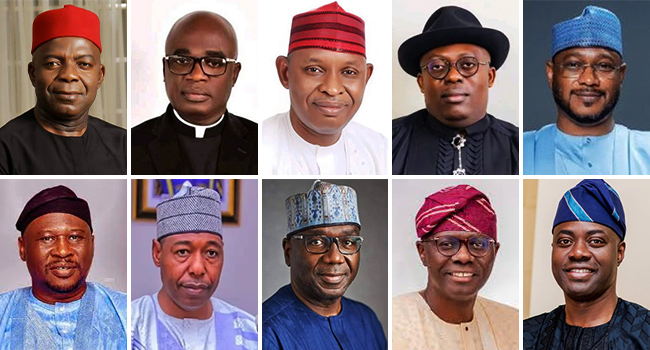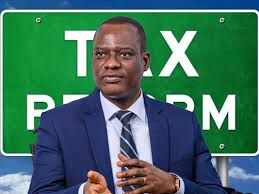According to a recent report by The PUNCH, over 30 state governments in Nigeria collectively spent N986.64bn on recurrent expenditures in the first quarter of 2024. This massive spending included costs for refreshments, sitting allowances, travel, utilities, and other miscellaneous expenses.

The data was gathered from Open Nigerian States, a platform supported by BudgIT that houses public budget information. The analysis covered 30 states, as budget implementation data for Benue, Imo, Niger, Rivers, Sokoto, and Yobe states were unavailable for the first quarter of 2024.
A detailed breakdown reveals that the states spent N5.1bn on refreshments for guests, N4.67bn on sitting allowances for officials, N34.63bn on travel expenses (both local and foreign), and N5.64bn on utility bills. Utilities included electricity, internet, telephone charges, water rates, and sewerage charges. Furthermore, N405.77bn was spent on salaries for state employees.
The report also covered other recurrent expenditures such as foreign and domestic travel costs, internet fees, entertainment, foodstuff, honoraria, wardrobe allowances, telephone bills, electricity charges, stationery, special days, welfare, and aircraft maintenance.
For instance, Abia State’s recurrent expenditures for the first three months of 2024 amounted to N10.92bn. This included N165.38m on refreshments and feeding, N39.26m on utilities, N214.57m on sitting allowances, and N127.1m on travel.
Adamawa State spent N23.7bn on recurrent expenditures, with N287.61m on refreshments, N109.62m on utilities, N79.57m on sitting allowances, and N768.77m on travel.
In Akwa Ibom State, recurrent expenditures reached N46.85bn, with N4.46m on refreshments, N223.32m on utilities, N6m on sitting allowances, and N214.61m on travel.
Anambra State’s recurrent expenditures totaled N9.91bn, including N78.18m on refreshments, N32.52m on utilities, N42.09m on sitting allowances, and N188.39m on travel.
Bauchi State’s recurrent spending was N35.75bn, which included N397.58m on utilities, N50.8m on refreshments, N287.11m on allowances, and N413.56m on travel.
Bayelsa State’s recurrent expenditures amounted to N35.1bn, with N28.4m on utilities, N156.14m on refreshments, and N279.99m on travel.
Lagos State reported N189.62bn in recurrent expenditures, including N1.21m for refreshments, N383.12m for utilities, N52.79m for sitting allowances, and N633.37m on travel.
Other states such as Borno (N18.79bn), Cross Rivers (N17.44bn), Delta (N68.68bn), Ebonyi (N14.95bn), Edo (N32.32bn), Ekiti (N32.8bn), Enugu (N7.51bn), and Gombe (N20.89bn) also reported significant recurrent expenditures during this period.
Jigawa State spent N15.52bn, Kaduna N34.69bn, Kano N34.41bn, Katsina N21.87bn, Kebbi N11.67bn, Kogi N37.4bn, Kwara N24.34bn, Nasarawa N18.61bn, Ogun N47.12bn, Ondo N31.12bn, Osun N24.39bn, Oyo N40.12bn, Plateau N24.70bn, Zamfara N13.46bn, and Taraba N20.93bn on recurrent expenditures in the first quarter of 2024.
The high levels of state spending have sparked increased scrutiny, particularly amid Nigeria’s ongoing economic challenges. Financial experts have expressed concern about the emphasis on recurrent expenditures and called for innovative financial strategies.
Aliyu Ilias, a development economist, highlighted the need for states to develop industrial and marketable sectors to attract investors. He advised, “States should identify their strengths to attract investments. For example, Bayelsa with its oil resources should formulate policies to draw in investors and organize economic summits to showcase their potential.”
Prof. Akpan Ekpo, an economist and former Vice-Chancellor of the University of Uyo, urged states to enhance revenue through improved service delivery. Prof. Segun Ajibola from Babcock University pointed out the persistent problem of high governance costs at the state level, attributing it to a lack of oversight and accountability.
The former president of the Chartered Institute of Bankers lamented the inefficacy of state assemblies in performing oversight functions, allowing governors to spend without transparency or accountability. He stressed, “The high cost of governance is not just a federal issue. State governments often operate with minimal oversight, leading to high expenditures with little impact on citizens’ lives. State assemblies should play a crucial role in overseeing executive activities, but this is rarely the case.”
Read also:
- Trending certificate found at ‘Suya’ spot invalid, says LASU
- Side Chick in Severe Pain After Married Man Returns to His Wife
- Rita Edochie Shares Adorable Pic with Her First Daughter, Fans Praise Them: “Beautiful and Classy”
- Fan of Saida Boj Says Only Broke Men Disagree with Her
- Political Choice: Lessons Learned by Toyin Abraham
- Police Recruitment: PSC Releases List of Successful Candidates
- Minimum wage: NLC, TUC suspend strike for five days
- Wigwe’s Death: RCCG Suspends Pastor After Wife’s Lavish Birthday Celebration
- Man cries out as helpless lady he picked up by roadside steals his plasma TV
- Video of Sabinus, Falz, Poco Lee, and Others Struggling to Sing Old National Anthem Goes Viral
- Junior Pope: Nosa Rex Responds to Ruby Ojiakor’s Accusations
- Strike Will Increase Hardship; N494,000 Minimum Wage Unrealistic, Says Labour Party
- NLC Strike Causes Nationwide Blackout as Workers Shut Down National Grid
- CBN Revokes Heritage Bank’s Licence
- Minimum Wage: Shehu Sani on Potential Impact if FG Agrees to 400k Pay
- Donald trump found guilty in hush money trial; becomes first ex-U.S. President to be criminally convicted



